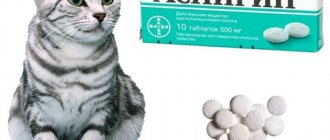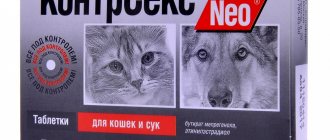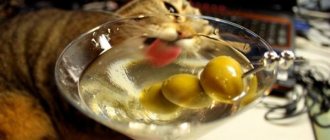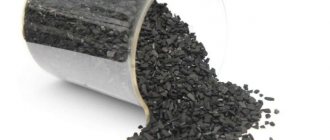Many people in childhood were given fish oil, which they so disliked at that time, which was necessary for health and growth.
Animals are also not particularly happy about consuming fish oil, but cats need this best medicine, created by nature itself, and very useful for their body. Especially for kittens, it is necessary to receive a fortified complex, because one milligram of fish oil contains vitamins A, D2, D3, E, as well as phosphorus, bromine and iodine - elements that strengthen the immune system and contribute to the healthy development of kittens.
The main function of this product is to promote normal, without painful deviations, development and growth of kittens, since this product is actively involved in the formation of bone tissue in young animals. It is given to healthy adult animals to regulate metabolic processes in their bodies.
What is fish oil and how is it useful?
Fish oil is a compound of animal origin obtained from the liver or carcass of marine fish, mainly cod, and has undergone special purification. Thanks to the substances contained in this product, it is used in veterinary medicine for many diseases.
Fish oil contains:
- vitamins A, E, D;
- saturated fatty acids Omega-2 and Omega-3;
- trace elements: bromine, iodine, sulfur and phosphorus.
Benefits for cats. Using this product as a supplement to your main diet will help:
- lower cholesterol levels;
- improve blood clotting and increase hemoglobin levels;
- normalize fat and protein metabolism;
- increase cell regeneration and improve immunity;
- rapid and proper development of bones.
In addition, fish oil is quickly absorbed and very easily absorbed by the animal’s body.
The effect of Omega-3 on the cat's body
The intake of Omega-3 into the body of cats is an extremely important process. PUFAs are involved in the formation of cell membranes in all internal organs and tissue structures. In addition, Omega-3 polyunsaturated acid helps to activate the processes of renewal of cellular structures, increasing their life expectancy.
It has been proven that even a slight deficiency of Omega-3 in the body provokes a disruption in the functions of cell walls, acting as a specific barrier. In this case, the animal’s body suffers, namely:
- immune defense decreases;
- increased sensitivity to stress;
- there is a predisposition to various pathological processes in the body.
Multivitamin complexes, which contain Omega-3, are necessary for the formation of specific fat that covers the internal organs of animals and protects them from exposure to temperatures and mechanical damage.
The main function of Omega-3 for cats is participation in the processes of regulating the production of hormonal tissue substances. Prostaglandins, prostacyclins, thromboxanes and leukotrienes are produced in cellular structures and are responsible for the regulation of a large number of processes in tissues. Tissue hormones activate or suppress inflammatory processes in the body, are capable of constricting or dilating blood vessels, increasing or decreasing blood clotting factors and immune responses.
Methods of application
Fish oil is used not only as a food supplement, but also as a primary medicine. Depending on the disease it is prescribed:
- Intramuscularly . In this case, fish oil has a biostimulating effect. Injections should only be given as directed and under the supervision of a veterinarian.
- Externally . The product has an anti-inflammatory and sedative effect, which makes it possible to use it for burns and frostbite. Veterinarians often use it as an antiseptic in the treatment of various types of dermatitis and eczema, weeping wounds, as well as seborrhea. With this method of application, fish oil is applied to a sterile bandage or the affected area.
- Orally . Used as a general tonic for chronic infectious diseases; to strengthen the immune system, especially for animals in the postoperative period. It is also recommended to take it in case of deficiency of vitamins D and A, for the prevention of anemia and rickets, and with increased fragility of the animal’s bones.
As an adjuvant, fish oil is used for various allergic reactions, and is involved in the treatment of gastrointestinal and oncological diseases, as well as for reproductive disorders.
The benefits of the vitamin complex
Fish oil is a natural, organic product, so it is most completely and easily absorbed by the body.
Vitamins contribute to the proper development of the cat’s skeleton and normalize metabolic processes in bone tissue. The drug accelerates bone healing after fractures.
Visual acuity and immune strength are maintained. The vitamin supplement ensures normal functioning of the gastrointestinal tract and prevents the development of pathologies of the digestive system.
The antitumor effect of the vitamin complex is relevant for older cats as a preventive measure for the appearance of tumors of various types.
The product is effective for keeping the skin clean. It helps relieve itching, inflammation and allergic rashes. The drug stimulates the regenerative functions of the skin, promotes the healing of wounds, burns, and frostbite. It increases the stamina of pets.
Dosage
For kittens to prevent diseases, the maximum daily dose is 0.5 g and only after reaching 3 months of age. For adult cats and female cats, the dosage of the drug is calculated individually depending on the size and weight, as well as the age of the animal.
Usually 5-10 g are prescribed for prevention.
And in case of illness, the dosage is calculated by the veterinarian.
The benefits of fish for cats
It is now fashionable to say that cats are absolutely not allowed to fish. But many continue to give it to their pet, rightly believing that thousands of cats have happily lived long lives on a fish diet. And it’s fair to say that such food has a number of advantages:
- A complete set of amino acids.
Fish is a complete protein of animal origin. It is easily digested in the short intestines of cats and contains essential amino acids, including taurine. Depending on the type of fish, the amount of protein is 16-24%, and it is absorbed by 95-98%, in contrast to meat protein - 87-90%.
- Source of omega-3 fatty acids.
Unlike humans, it is not lean fish that is healthier for a cat, but fatty fish. In river fish (ruff, perch, pike) the fat content does not exceed 4%, the same amount in pollock, cod, and flounder. Noble varieties of fish contain 9-25% fat: herring, salmon, mackerel, sturgeon. Fat serves as a valuable source of energy and essential Omega-3 acids.
Thus, with fatty fish, the cat receives high-quality protein and the optimal amount of “good” fat. Claims that fish is not a species-specific food for cats are unsubstantiated. In the same way, it is not natural to feed your pet beef or chicken, because in nature a cat would eat a mouse or small bird whole, with head, skin, entrails and bones.
And what should I do with this fish?
- Attractive taste and aroma.
Many cats love the smell of fish and seafood. You can easily add vegetables to your pet’s food by grinding them together with fish, and even feed the tablet. Using fish juice, they flavor the water, stimulating the cat to drink more - this is necessary for diseases of the urinary system.
Even a small amount of fish in industrial food can make the product attractive to cats - this property has been successfully used, for example, in the production of “unpalatable” food for cats with kidney failure (Renal).
Fish...murrr
In other words, fish is a good way to pamper your cat, diversify the menu, and even encourage desirable behavior (training). But fish can bring not benefits, but great harm to health, if fed incorrectly.
Let’s make a reservation right away - you should choose fish not for reasons of cheapness, but based on what kind of fish will benefit the cat.
Cats should not be given:
- Freshwater fish varieties (carp, roach, bream, crucian carp).
Cannot be fed raw due to the high content of antivitamins and deworming. And even when boiled, it is impossible to get rid of many small bones that are dangerous for your pet. The meat is too lean, there is not enough of it, and the labor costs for such food are not worth it - it is easier to give a piece of chicken.
Small fish caught with a fishing rod are not the best treat
- Sea fish that accumulate histamine and mercury (tuna, mackerel, herring).
The most useful varieties include fish from the salmon family:
- river trout (lives only in clean water, quite fatty, rarely infected with parasites);
- salmon, pink salmon, chum salmon.
If you need a diet with a low amount of fat, then you can give boiled lean fish - hake, cod, blue whiting.
Chilled trout is a good choice
More than half of the problems associated with feeding fish can be avoided by boiling the delicacy. When cooked, thiaminase (vitamin B1 antagonist) and trimethylamine oxide (iron antagonist) are destroyed, and parasite larvae are killed.
Before giving fish to a cat, you need to remove fins, bones, and all sharp parts of the carcass. It is not advisable to feed milk or heads separately; they give only meat.
Fish should not be the basis of the diet; it is better to give it as an additional source of valuable substances and delicacies. If your cat eats fish often, you need to take care of additionally including vitamins E, K, and group B in the food.
Fish is an excellent flavoring agent, so many owners use it to disguise cereals or vegetables - the fish is mixed with them in a bowl in the form of minced meat or small pieces.
Let's summarize. In order for fish to be beneficial and not harmful, you should:
- Choose a type of fish;
- Boil for at least 20 minutes (do not add salt to the water!);
- Remove bones (fillet);
- Give no more than 1-2 times a week;
- Make sure your cat is not allergic to fish.
We suggest you read: How to understand that a cat has a stomach ache: symptoms of bleeding in a cat’s stomach, stomach problems in cats
The owner needs to be careful that the cat does not develop a dependence on fish - when the pet refuses any other food.
Give me more fish, man!
It contains a huge amount of vitamins A, E and group D, substances such as phosphorus, iodine, bromine. However, can this medicine be given to animals, in particular representatives of the cat family?
Fish oil is just as important for cats as it is for people. It must be taken by kittens from an early age.
Small kittens and adult cats should take a fortified complex. This strengthens the kitten’s immune system and protects against various diseases, including infectious ones.
If the kittens have poor bone tissue development, sexually mature kittens have lost their appetite, weakness and problems with the digestive system have appeared, the sclera has become dull in color - this indicates a lack of vitamin A, which needs to be replenished. Fish oil is used for general strengthening, so that bones heal faster in case of a fracture.
Also, the use of fish oil is indicated in the treatment of burns, dermatitis, eczema, and frostbite. The medicine helps cats cope with wounds and ulcers that do not heal well. Reduces blood viscosity, regulates platelet levels, normalizes cholesterol, and treats diseases of the gastrointestinal tract.
Consumption of fish oil has a beneficial effect on coat growth and shine. Prevents its fragility, loss, and makes it silky.
The drug is safe, but animals may react differently to it. In some cats, fish oil does not cause side effects, in others, dandruff appears and the coat becomes oily. Such symptoms may appear with an overdose. In this case, after stopping use, all symptoms disappear within one week.
Also, some individuals may experience disruption of the digestive system, which is manifested by nausea and diarrhea. For such symptoms, the dose should be reduced.
This explains why cats should be given fish oil. Fish oil actually contains many different beneficial vitamins and substances. They have a beneficial effect on the development of the skeletal system and the body of a small kitten as a whole. They take an active part in normalizing the functioning of the internal organs of an adult cat, preventing the occurrence of cracks and fractures of bones.
Important! The medicine is purchased only in specialized stores for animals. Your veterinarian or the accompanying instructions will tell you how much fish oil you need to take.
Every owner who loves his tailed barking friend wishes him good health and many years to come.
In addition to proper nutrition and active walks, your pet’s excellent health can be maintained with vitamins and nutritional supplements. These products include fish oil for dogs.
Fish oil is quite well absorbed in animals. An increase in Omega-3 levels can be noticed after just a week of use. After completing the course of treatment, fat is removed from the body within a month.
What effect does fish oil for dogs have on the body? Its benefits and harms have been scientifically studied. In general, the product is considered an indispensable source of polyunsaturated omega-3 acid.
- It has a positive effect on the proper formation of the dog’s skeleton and maintaining the integrity and strength of the bones.
- Maintains a healthy appearance and condition of the coat.
- It is an excellent immunomodulator.
And in general, it has a beneficial effect on all systems of the animal’s body:
- Cardiovascular.
- Nervous.
- Muscular.
- Visual, auditory, olfactory organs.
Fish oil does not cause any harm to the dog’s body. It is one of the safest supplements. Of course, provided that it is used correctly according to the instructions. The only side effects of taking it may be dandruff and a fishy odor from the animal’s mouth.
Cats are pets that are familiar to everyone. In some countries they are considered sacred. Temples are decorated and monuments are erected in their honor. Even signs and certain rituals are associated with cats. In order for a cat to be the pride of its owner, it needs proper supervision. An animal requires a sufficient amount of vitamins for growth and development, as well as to maintain shape. Taking fish oil for this purpose is the subject of much discussion and controversy.
We invite you to read: What can you call a black cat?
There is an opinion that it should not be given, since these animals do not swim or fish and, accordingly, it will only cause harm. But it is important to remember that it is not the fat itself that brings benefits, but the beneficial compounds in its composition in the right quantities.
Fish oil has been used by veterinarians for a very long time. Doctors prescribe it for both children and adult cats. It can be used as a primary medicine and as an additional remedy.
Fish oil is available in liquid form or in capsules. The latter are in great demand. According to many, it is easier for a cat to swallow a capsule. Moreover, small kittens still have the opportunity to play with it before swallowing it.
The supplement can be added to food, applied externally, or injected. It very easily penetrates cell membranes, and, therefore, is quickly absorbed and absorbed by the body. Due to the composition of this additive, its spectrum of action is very wide:
- Prevention and treatment of vitamin A deficiency (helps treat rickets).
- Accelerates the process of bone healing after fractures.
- Regulates the number of platelets in the blood and reduces its viscosity.
- Lowers cholesterol levels.
- Has a vasodilating effect.
- Improves immunity, making the animal more resistant to diseases.
- Helps treat chronic infectious diseases.
- Used in the treatment of gastrointestinal diseases.
- It is an excellent tool for preventing the formation of tumors.
- It is used as an auxiliary substance in the treatment of allergies.
- In case of skin diseases, it relieves itching and inflammation.
- Externally, fish oil is very effective in the treatment of burns and frostbite, wounds that take a long time to heal poorly, and also helps with damage to the mucous membranes.
- Used as a general tonic.
| Forum moderator: Natalie_Tay, syub |
| Forum about Thai cats and more » Pro forums » All about nutrition » Fish oil for cats: for or against |
Overdose and side effects
Side effects are individual for each member of the cat family. Whether they will be or not depends not only on the correctly selected dose, but also on the condition of the entire organism. Main symptoms of overdose:
- Most often, an incorrectly calculated dosage leads to digestive problems. This may manifest as diarrhea or vomiting. In this case, you should consult your doctor and reduce the amount of medication. In severe cases, treatment is stopped and another drug is prescribed instead of fish oil, but this happens extremely rarely.
- Sometimes a reaction to taking fish oil is dandruff. This phenomenon is temporary, and if the cat does not scratch the skin to try to get rid of the itch, there is no cause for concern.
- Often there is a phenomenon such as increased oily skin. There is nothing to worry about; the symptoms disappear a few weeks after stopping treatment.
- A rare side effect is a bleeding disorder. In this case, you should consult a specialist and possibly stop taking the drug.
At the beginning of a course of treatment or prevention with fish oil, the owner must carefully monitor the condition and behavior of the animal.
If alarming symptoms appear, you should contact your veterinarian.
Prevention and treatment of cat diseases
Beneficial acids Omega-3 and Omega-6 are necessary for the following health problems in cats:
- disturbances in the functioning of the immune system;
- diseases of the heart and blood vessels;
- vision problems;
- diabetes;
- underweight or obesity;
- rheumatoid arthritis;
- osteoarthritis.
Vitamins for cats with Omega-3 and Omega-6 are indicated to improve the condition of the skin and coat. Vitamin complexes with PUFAs have a positive effect on the process of absorption of retinol and tocopherol and increase the possibility of transmitting nerve impulses. They also help prevent inflammation from developing in your pet's body.
What to look for when choosing
You need to purchase the drug only in specialized pharmacies or pet stores. When purchasing, be sure to:
- Pay attention to the expiration date and composition of the product. It is advisable to choose a product made from a carcass and undergone several degrees of purification.
- Take fish oil from a reputable manufacturer, as this will protect you from counterfeit products.
- Study the composition of the drug. It should not contain additives in the form of rosemary, lemon and others. This will help avoid allergies in the animal.
In addition, when choosing, you should take into account the release form. Liquid fish oil is suitable for external use. In other cases, it is better to take capsules. The effectiveness of both forms is the same, but capsules eliminate the need to measure the dose and the possibility of error.
Is there any harm
Fish oil for cats is the safest food supplement. Owners, when introducing it into the diet for the first time, should not forget that the animal’s reaction may be different. Therefore, responsibly and individually select nutritional supplements for your pet. If an animal has an individual sensitivity to fish oil, then it should not be given.
An overdose can lead to nausea, vomiting, indigestion, and various allergic reactions.
Before adding fish oil to your cat's diet, be sure to consult your veterinarian. The drug can have both positive and negative effects on the animal’s body. Be sure to follow the dosage. When purchasing fat, carefully study all the information on the packaging. The supplement should only be purchased at pet stores or veterinary pharmacies.
For puppies
Normally, babies from two months to six months should receive 200 units of the supplement per 10 kg of weight. This volume is contained in two capsules or one teaspoon of liquid oil. In this case, it is necessary to give fish oil to any puppy for 2 weeks, and then take a break for the same period.
While feeding the medicinal supplement, it is necessary to monitor the condition of the puppy. Individual intolerance is indicated by hair loss, itching, and eating disorders. In this case, you should stop taking it and after six months try giving fish oil from another manufacturer.
For adult pets
It should be given to older dogs with caution and in small quantities. Since it can put stress on the liver.
Adult dogs do not need to be given this product. It can be perfectly replaced with any vitamins. And if you feed your animal a balanced diet that already contains certain microelements, then you should not give additional food additives.
Some believe that fish oil is best given to animals along with cottage cheese. There is no specific evidence for this technique, but the drug is indeed better absorbed with dairy products.
We invite you to familiarize yourself with the Forest Dormouse - 125 photos, video description, habitat, diet and keeping at home
Agriculture
Fish oil is actually very useful to give to piglets; it contains the omega-3 element, which is very beneficial for the body of piglets, especially for young animals. The main thing when using fish oil is to be sure that it is not expired and of good quality. There is a specific example of the effect that fish oil has when added to the diet of pigs.
If you use up to 1 liter per approximately 250 kilograms of feed, the gain increases by 5 percent, the safety criterion also increases by 2-3 percent, and the quality of boar sperm also increases, this is manifested in concentration and in general activity. It is also good to use fish oil for the purpose of taming piglets to dry food; here the appetizing smell of fish oil is of great importance, which is used to lure young animals to the food.
Of course, everyone also knows that fish oil contains a lot of different vitamins and polyunsaturated fatty acids of natural origin, and this means that fish oil is much more readily consumed in contrast to artificial vitamins; we can say that fish oil is a good analogue of others vitamins, which are much more effective and affordable.
We invite you to familiarize yourself with Calcium Gluconate for cats - instructions for use
By the way, some people use regular unrefined sunflower oil instead of fish oil; others say that the effectiveness is the same, but I honestly doubt it; there is also experience using flaxseed oil, which is also added to the diet of piglets in small quantities. Today there is a large selection of all kinds of vitamins for piglets, which combine fish oil and other useful elements, but there is an opinion that non-synthesized vitamins are much better, and if possible, you should definitely use real natural vitamins and natural preparations.
Additive composition
The main compounds found in fish oil are vitamins D and A. The first promotes the absorption of phosphorus, calcium and other components that are necessary for normal bone development and growth in cats.
The second named vitamin will be necessary during the growth of baby teeth in kittens. In adults, vitamin A has a positive effect on the digestive system.
https://www.youtube.com/watch?v=https:tv.youtube.com
Fish oil also contains a lot of fatty acids. In addition, this fat is a source of iodine, sulfur, and phosphorus. All these elements are part of organic compounds. They are very important for the cat's body. Therefore, they must be taken with food.
Ascorbic acid is an important thing in a cat’s body.
A severe deficiency of vitamin C in a cat’s body can have a very unfavorable effect on its liver or stomach.
A clear indication of this is redness of the entire oral cavity and swelling in the gum area. Adding lettuce, carrots and raw meat to natural food helps against C-vitaminosis. In addition, you need to give either ascorbic acid in powder form, or inject it together with glucose. At the same time, we should not forget that the mouth must be washed with a special solution. Remember that all these procedures mainly concern cats, since dogs can produce vitamin C in their bodies absolutely independently, so they are completely protected from this disease.
Even without the sun, you can fill your domestic cat’s body with vitamin D. Vitamin D is responsible for the strength of muscles and bones. The fact that there is a sharp lack of this vitamin in your pet’s body can be evidenced by the fact that he begins to eat earth and chew on the wall instead of standard food that is normal for him. In this case, you should sound the alarm.
After all, all this means that your little brother is dangerously close to rickets, joint disease and dental problems. In the summer, solving this problem is very simple - walk with your pet as often as possible. But in winter and autumn it is much more difficult to maintain a normal amount of vitamin D in the body. This requires ultraviolet irradiation.
And food should be supplemented in the form of phosphorus salt, meat and bone meal, calcium gluconate, as well as eggshells, which are first crushed and dried as thoroughly as possible.










